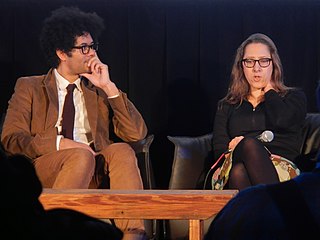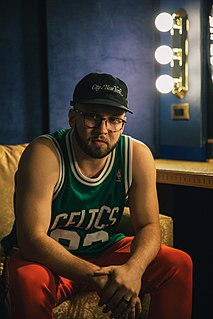A Quote by Maya Forbes
The people I know who suffer from mental illness, sometimes they do connect you to what it is to be really human. There's a vulnerability there, there's something very potent.
Related Quotes
I've never had a sustained period of medication for mental illness when I've not been on other drugs as well. It's just not something that I particularly feel I need. I know that I have dramatically changing moods, and I know sometimes I feel really depressed, but I think that's just life. I don't think of it as, "Ah, this is mental illness," more as, "Today, life makes me feel very sad." I know I also get unnaturally high levels of energy and quickness of thought, but I'm able to utilize that.
The very term ['mental disease'] is nonsensical, a semantic mistake. The two words cannot go together except metaphorically; you can no more have a mental 'disease' than you can have a purple idea or a wise space". Similarly, there can no more be a "mental illness" than there can be a "moral illness." The words "mental" and "illness" do not go together logically. Mental "illness" does not exist, and neither does mental "health." These terms indicate only approval or disapproval of some aspect of a person's mentality (thinking, emotions, or behavior).
There's no such thing as mental illness. We're all mentally ill and we're all haunted by something, and some people manage to find a way to ride it out so that they don't wind up needing extra help. So I think that "mental illness," as a term, is garbage. Everybody is in various states of needing to transcend something.
When you have mental illness you don't have a plaster or a cast or a crutch, that let everyone know that you have the illness, so people expect the same of you as from anyone else and when you are different they give you a hard time and they think you're being difficult or they think you're being a pain in the ass and they're horrible to you. You spend your life in Ireland trying to hide that you have a mental illness.
Often, when you're growing up, you don't know what's wrong. We don't talk openly enough about mental illness. How do you know - especially today with the incredibly high stress teens are put under during high school - if you have depression or if you have a mental illness or if you have anxiety? You don't know, because you've never seen it.
People with what we call mental illness can indeed serve well, and people who have no discernible mental illness - and that may be true of Trump - may not be able to serve, may be quite unfit. So it isn't always the question of a psychiatric diagnosis. It's really a question of what psychological and other traits render one unfit or dangerous.




































